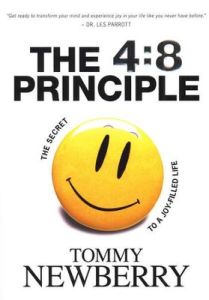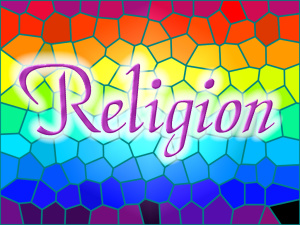In today’s Gospel, Jesus seems to be indicting religious rights and rituals. Indeed, there is a certain danger in becoming focused on the secondary structures of religion instead of the “heart” of the matter which is the “heart” of the believer.
But in the Book of Deuteronomy, Moses says that observance of the statutes, commands and decrees of the Lord lead to intelligence and wisdom.
So which is it?
Jesus does not dismiss laws, rituals or observances. They point to worship and a person’s heart, they guide us and protect us.
For example, let’s examine Jewish “religious laws” especially those that concerned food. These laws had valid hygienic reasons associated with them.
There were no water purification plants at the sea of Galilee at the time of Jesus. Crustaceans that crawled or shellfish that lived along the bottom of the sea were feeding on sewage. Hence, the dictates against eating shellfish.
Trichinosis is a disease caused by eating pork and wild game infected by parasitic roundworms. This was the reason for the ban on pork.
What about religion and religious rituals? There’s nothing wrong with the religious rituals. They are good things.
You often hear people say, “I’m spiritual, not religious.” Ok, but how do you live out the spiritual life? What does your “spirituality” look like day to day? How do you integrate your spirituality with your activity?
Here’s a quote:
“O God, you cause the minds of the faithful to unite in a single purpose. Grant that your people would love what you command and to desire what you promise; so that, amid the uncertainties of this world, their hearts may be fixed on that place where true gladness is found.”
That’s the Opening Prayer from last Sunday, the 21st Sunday In Ordinary Time.
It speaks of uncertainties, loving and living God’s commands and attaining true gladness. So how do we do that?
Let me bridge that prayer with a book, The 4:8 Principle by Tommy Newberry. The “4:8 Principle” is based on Philippians 4:8:
Finally, brothers, whatever is true, whatever is honorable, whatever is just, whatever is pure, whatever is lovely, whatever is commendable, if there is any excellence, if there is anything worthy of praise, think about these things.
According to a review on the book:
We live in a society bent on nursing old wounds and highlighting what is wrong with just about everything. We have grown accustomed to viewing the world, our lives, and ourselves through a lens of negativity. This stands in direct contrast to the passionate, purpose-filled people God wants us to be. This is where the 4:8 Principle grabs our attention.
Newberry takes a single biblical principle and teaches how this one simple truth can magnify the joy we experience in our marriage, with our parenting, at our job and in our life as a whole.
First, the author persuades us to acknowledge the link between the thoughts we choose to think - and the joy we experience.
Next, he shows us how we can grow our potential for joy by refusing to dwell upon the types of problems and pressures that are enduring and inevitable in life.
Finally, he challenges us to pay the price of joy by becoming “extraordinarily picky” about what we read, watch, and listen to on a consistent basis.
The strength of the book, though, is in Newberry’s ability to clearly explain how to put the principles into daily practice through a series of quick, easy and even fun adjustments, to go beyond the ordinary and experience life as it was meant to be.
Notice, Newberry takes things that are transcendent - thinking, emotional pressure, joy, principles - and connects them with touch-y feel-y actions and exercises to achieve a result - like becoming a “wise and intelligent” person as we heard in the First Reading from Deuteronomy.
THIS IS WHY YOU NEED “RELIGION.” It is the way you take what Jesus says is in your heart - and connect it to life in a practical fashion.
- Prayer is religion.
- Icons are religion.
- Mass is religion.
- Eucharist is religion.
- Acting out of your heart with empathy and care and compassion by means of an “alternative spring break” or service trips; this is religion too.
They serve a purpose to engage the spiritual life, to enhance the spiritual life. They take spirituality and make it incarnational.
In the end, it comes down to intentions direction. Rites, rituals, decrees and observances are not directed outward to be seen. They are intended to pull our minds towards internal reflection - into examining our heart and our motives. Subsequently, having had our motives examined, our intentions purified, our sinful tendencies redeemed, can we be assured of external actions that are helpful to others and pleasing to God.
Audio version of the homily provided here:


